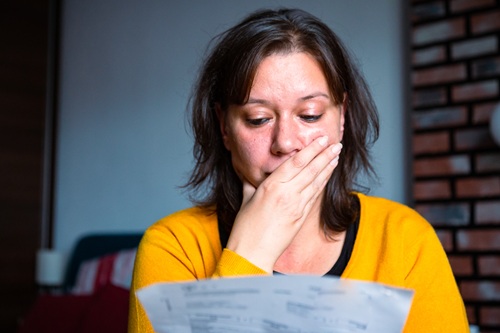Businesses are signing up to an ambitious agenda to end poverty, protect the planet and ensure all people enjoy peace and prosperity. Dr Keith Whitehead, British Safety Council’s senior environmental consultant reports on an encouraging shared standard.
Features
Global gathering
Many UK businesses are playing a part in helping the UK to work towards the Sustainable Development Goals (SDG) designed to ensure global prosperity while protecting the environment through their corporate social responsibility programmes, but importantly they are aligning and mapping their health, safety and environmental programmes to them.
I recently carried out a British Safety Council Five Star Audit of a well-known UK business that wanted to benchmark its health, safety and environmental management systems and programmes against global best practice. This auditee, like many UK businesses, has identified the 17 UN global SDGs to show how they are thinking more strategically while acting very locally in the protection of its stakeholders and the wider environment.
This is very good news because not so long ago sustainability was seen by most companies as little more than a peripheral ‘green’ issue – useful for reducing energy and waste disposal costs or supporting some worthy community causes, but hardly central to a company’s core business.
Thankfully, this is changing and even many small and medium enterprises members of the British Safety Council now engage with us to promote their approaches to embracing the SDGs through their health, safety and environmental programmes and systems.
In 2018 we updated the Five Star Environmental Audit— a prerequisite for those applying to the Globe of Honour Award—with some new questions that encourage businesses undertaking the audit, no matter what size, to look at the UN SGDs to drive their environmental health and safety agenda beyond just compliance.
During the recent audit mentioned earlier, evidence presented by the group and the local site staff showed that engagement with the goals was taking place at every level of the organisation. Although many businesses, particularly SMEs, still find it difficult to think globally and engage with sustainability, the tide of thought is changing.
There is no single solution, and there is now an accepted understanding that governments are no longer the only actors responsible for building sustainable societies, but they will want to measure and monitor progress and manage the effectiveness of their interventions. In turn, businesses will need to assess their impact on the SDGs and review their strategy accordingly. They will need to collect, assure and report new data.
Businesses are therefore considered to be key stakeholders in the implementation of this ambitious agenda to end poverty, protect the planet and ensure all people enjoy peace and prosperity.
The UK government look to businesses for help to achieve them, and that will mean a major change for UK business to implement programmes across their supply chain. They have a crucial role to play in providing business solutions to challenges such as the sustainable use of natural resources.
Ahead of this, and although a large proportion of the objectives and actions required to achieve the SDGs are the responsibility of individual governments, many UK businesses
are already using the goals to map how their organisations’ health, safety, environmental, corporate social responsibility (CSR) and philanthropic initiatives are contributing to achieving them.
More than 25 of the UK’s best-known retailers have signed up to a series of pledges to take collective action to tackle environmental issues, inequality and modern slavery. Household names such as Aldi, Boots, House of Fraser, Ikea, John Lewis, Lidl, M&S, Next, Sainsbury’s and WHSmith have signed up to a raft of joint targets based on the SDGs.
The list of companies engaging in reporting and mapping their HSE operations and CSR initiatives to the goals is expanding rapidly and are not confined to large companies. In fact, only a few weeks ago I was visiting one small pharmaceutical company,
a member of the British Safety Council, that is already using the
goals to help communicate their safety, health and environmental programmes to their staff.
Any business, anywhere, regardless of its size or industry sector, can consider the aims of the SDGs and determine if it is already contributing to achieving them at any level, either externally within communities, or internally with key stakeholders, such as other businesses it works with and staff.
Although there is no set process for assessing an organisation’s day-to-day business activities and CSR initiatives against the aims of the SDGs, a simple process might include the following:
Step 1: Examine the SDGs from a business-risk perspective. All companies should go through all the goals and identify if there are any goals or targets that the organisation’s day-to-day operations could have an adverse or negative impact on and which is it positively contributing to
Step 2: Determine which SDGs are relevant to the company’s core operations and any HSE programmes. Since not all 17 goals and 169 targets are equally relevant to all companies, it is crucial to identify which ones are
Step 3: determine which SDGs are relevant to the company’s external CSR activities. If a company has a clearly defined CSR strategy with goals and targets, it should determine which SDG goals and targets its CSR strategy is designed to address.
Companies can do a great deal to address these common interests and create long-term value using the SDGs. Adopting responsible business practices and committing
to sustainability in their own operations is the first step.
Businesses just like yours have an increasing responsibility to contribute to the sustainable development agenda and set an example by implementing the relevant goals within your operations. This would make employees aware of the goals, particularly those that directly affect them. Working closely with like-minded organisations would enable business to share best practices and create joint policies and initiatives to implement the goals on a wider scale.
Plain and simple, the SDGs are a business opportunity, and it will take a different kind of leadership to unleash it. The companies that will thrive will be those that seek to unlock the sustainability agenda and actively use it to drive their business efficiencies and opportunities. Those businesses which adapt, those that are the early adopters, will be leading our future economic prosperity and global challenges.
More info about the SDGs at: un.org/sustainable development/sustainable-development-goals
More on Five Start Audit at: britsafe.org/audit-and-consultancy/audit
Sustainable Development Goals
1. No Poverty – end poverty in all its forms everywhere
2. Zero Hunger – end hunger, achieve food security and improved nutrition, and promote sustainable agriculture
3. Good Health and Wellbeing – ensure healthy lives and promote wellbeing for all at all ages
4. Quality Education – ensure inclusive and equitable quality education, and promote lifelong opportunities for all
5. Gender Equality – achieve gender equality and empower all women and girls
6. Clean Water and Sanitation – ensure availability and sustainable management of water and sanitation for all
7. Affordable and Clean Energy – ensure access to affordable, reliable, sustainable and modern energy for all
8. Decent Work and Economic Growth – promote sustained, inclusive and sustainable economic growth, full and productive employment, and decent work for all
9. Industry, Innovation and Infrastructure – build resilient infrastructure, promote inclusive and sustainable industrialisation, and foster innovation
10. Reduced Inequalities – reduce inequality within and among countries
11. Sustainable Cities and Communities – make cities and human settlements inclusive, safe, resilient and sustainable
12. Responsible Consumption and Production – ensure sustainable consumption and production patterns
13. Climate Action – take urgent action to combat climate change and its impacts
14. Life Below Water – conserve and sustainably use the oceans, seas and marine resources for sustainable development
15. Life on Land – protect, restore and promote sustainable use of terrestrial ecosystems, sustainably manage forests, combat desertification and halt and reverse land degradation, and halt biodiversity loss
16. Peace, Justice and Strong Institutions – promote peaceful and inclusive societies for sustainable development, provide access to justice for all and build effective, accountable and inclusive institutions at all levels
17. Partnerships for the Goals – strengthen the means of implementation and revitalise the global partnership for sustainable development.
FEATURES

How to mitigate the hearing loss cost escalation tsunami
By Peter Wilson, Industrial Noise and Vibration Centre (INVC) on 06 February 2026
Employers need to adopt the latest and most effective noise risk evaluation and management measures, or face rapidly-rising compensation claims for noise-induced hearing loss at work.

Young drivers and work-related road risk: why employers must act now
By Simon Turner, Driving for Better Business on 06 February 2026
Young drivers have a higher risk of being involved in road collisions due to factors such as their inexperience, so when employing them to drive for work, it is vital they receive the right support to help them grow into safe professionals behind the wheel.

Financial stress: why and how it affects workplace safety
By Chloe Miller, freelance writer on 06 February 2026
Financial worries can lead to cognitive impairment that increases the risk of workplace accidents, so it’s essential employers provide financial education and confidential support for workers who may be struggling with problems like debt and unexpected living expenses.



